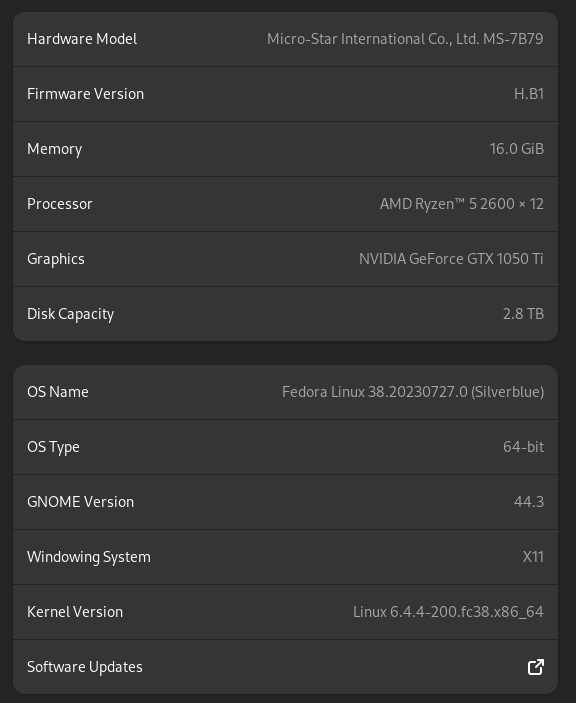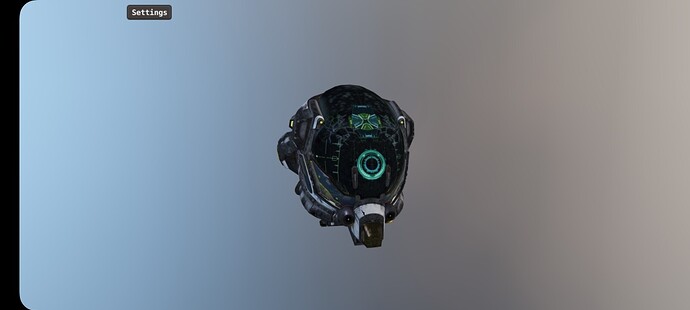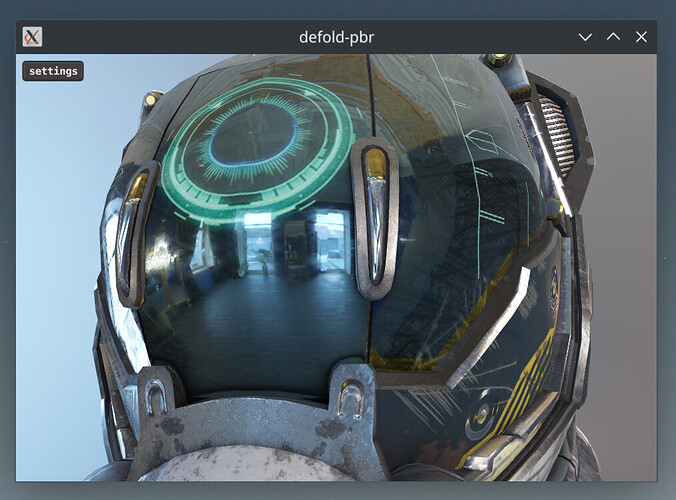Does the browser version work for you? If not can you run it in debug mode and see if anything prints in the console?
That’s a screenshot of the desktop version and it runs just as well on Firefox and Brave.
Guessing you mean the Defold PBR - Create Environment Assets command? I tried running that on both .hdr files in /assets/environment-maps but it gives a very odd error:
ERROR:EXT: Defold PBR - Create Environment Assets's "run" in /defold-pbr/core.editor_script failed:
ERROR:EXT: {2, {["action"] = "shell", ["command"] = {"mkdir", "-p", "assets/environment-maps/blue_photo_studio_2k"}}} needs "action" key to be "set" or "shell"
ERROR:EXT: {3, {["action"] = "shell", ["command"] = {"build/plugins/defold-pbr/plugins/pbr-utils-linux", "assets/environment-maps/blue_photo_studio_2k.hdr", "assets/environment-maps/blue_photo_studio_2k", "--generate", "irradiance", "--generate", "prefilter", "--meta-data", "--verbose"}}} needs "action" key to be "set" or "shell"
ERROR:EXT: Defold PBR - Create Environment Assets's "run" in /defold-pbr/core.editor_script failed:
ERROR:EXT: {2, {["action"] = "shell", ["command"] = {"mkdir", "-p", "assets/environment-maps/christmas_photo_studio_07_2k"}}} needs "action" key to be "set" or "shell"
ERROR:EXT: {3, {["action"] = "shell", ["command"] = {"build/plugins/defold-pbr/plugins/pbr-utils-linux", "assets/environment-maps/christmas_photo_studio_07_2k.hdr", "assets/environment-maps/christmas_photo_studio_07_2k", "--generate", "irradiance", "--generate", "prefilter", "--meta-data", "--verbose"}}} needs "action" key to be "set" or "shell"
However, removing get_platform_tool_prereq_cmd() from the returned actions fixes it and leads to the next error:
ERROR:EXT: Defold PBR - Create Environment Assets's "run" in /defold-pbr/core.editor_script failed:
ERROR:EXT: Cannot run program "build/plugins/defold-pbr/plugins/pbr-utils-linux" (in directory "/var/home/potota/Documents/Defold/defold-pbr-master"): error=13, Permission denied
And after setting that program as executable it finally opens a blank “PBR Utils” window for a few seconds and everything works!
More hardware/software details if you need it:
Thanks for testing it out! I haven’t tested all editor scripts on all platforms, there’s probably platform dependent caveats all around that we need to cater for… but good that you could get it to run at least! So far so good 
Hi, congrats on the alpha release. I’ve tested the link on an Android (13) phone, with device Samsung Galaxy A03s (Samsung SM-A037F, PowerVR Rogue GE8320), using DuckDuckGo (5.164.2.zp) browser. It shows everything except the reflection.
I hope this helps.
If anyone (@Pawel or @AGulev maybe?) could try and capture a faulty frame in renderdoc I could perhaps deduce something from that  otherwise I’d have to get my hands on Linux on a non-VM
otherwise I’d have to get my hands on Linux on a non-VM
I have run defold-pbr (88101508450f1ba07ef3c19cd21f87dc329ab27d) on Ubuntu 22.04.2 LTS. Looks good to me including reflections. Runs in the editor and as a Linux bundle using between 13% and 17% CPU. No errors. I also tried debug mode, no errors, nothing looks wrong.
So I guess it’s a driver issue then  the reflection cube map is using a half float format for performance reasons and I suspect it’s the culprit but that format has been around for a while so I would be surprised if it wouldn’t work…
the reflection cube map is using a half float format for performance reasons and I suspect it’s the culprit but that format has been around for a while so I would be surprised if it wouldn’t work…
I also had to remove get_platform_tool_prereq_cmd() to make the “Create Environment Assets” script run on Windows.
And a question: Does the script mirror the cubemap sides somehow? I tried to render a normal skybox using the 6 images from the Blue Photo Studio environment, and it displayed a mirrored version of the room (I guess from rendering the inside of a cube). So I either had to mirror the images myself or by negating the sample point z value in the vertex shader.
But when I used the generated prefilter texture it was already mirrored. Also, the entire was room was rotated by one side in the prefilter texture version, putting the sofa in the front.
The reason I’m using a separate skybox is to increase the resolution of the surroundings. It’s not really a problem, but right now I compensate for the mirroring and rotation at same time by switching x and z in the sample point:
var_position = vec3(position.z, position.y, position.x);
I’ve run into a peculiar problem. I wanted to play around with the fragment shader to display the different stages of the rendering process, similar to the what you can do using the debug menu.
The problem is, setting frag color is not always working. For example, when I wanted to render only the diffuse lighting, I wrote this in pbr.fp:
gl_FragColor = vec4(lightInfo.diffuse, 1);
It just gives me a black helmet. If I wrap this statement in an if-statement with some non compile-time condition (e.g. comparing some uniform variable) it shows the diffuse component correctly.
if (var_position_world.x > -100) gl_FragColor = vec4(lightInfo.diffuse, 1); //Works
if (true) gl_FragColor = vec4(lightInfo.diffuse, 1); //Doesn't work
gl_FragColor = vec4(lightInfo.diffuse, 1); //Doesn't work
Is there anything I’m missing when it comes to GLSL here? I can’t reproduce this in the starter 3D project, but there the model.fp doesn’t include any other GLSL code.
Yes that’s a side effect of our renderer binding textures to numerical units in OpenGL and not by sampler name (which is what we ultimately would like, but that’s another story) together with shader optimization the driver does. So in a sense we expect the order of the units to be bound in a certain way, and if you start removing stuff from the shader the order can be different and the texture can potentially be bound to the wrong samplers.
I see. If I understand it correctly, it also explains why I had to output both the diffuse and specular part first to make my hack work – to trick the optimizer not to optimize. What’s the best approach to make sure the textures aren’t bound to the wrong samplers then? Is it to write the fragment shader in such a way that it certainly uses all the samplers from the input?
I should probably try to write some shaders from scratch myself first I realize now.  Thanks for the help!
Thanks for the help!
Yes for now that’s how you do it. You can multiply the result of the pbr with 0.0000001 and add it to your output for exampl
What’s status of PBR for release? Safe to use for something in production? I only care about HTML5 runtime.
Probably safe to use for web, I don’t know if anyone has even tried it so I don’t know if it’s used in released projects. If you run into any issues I’d gladly help you resolve them!
We have now released a new version of this extension: Release PBR Alpha release 0.1.1 · defold/defold-pbr · GitHub
- The extension can now be used as a true dependency for a project - just put the zip URL into the dependencies field as usual in a separate project and it should work!
- The environment content generation tools now work on arm64 osx
- There is a known issue on OSX with what seems to be incorrect linear mipmap sampling when running with the OpenGL backend. This doesn’t happen on Vulkan / Metal and doesn’t happen on webgl builds, so far I’ve only seen it on OSX + OpenGL, so I’ll have to dig deeper to figure this one out.
- Updated to use the new render script format
- Textures are bound by sampler name instead of texture units
- Normals should look more correct
Post any issues you find on the main PBR repository, thanks!

Hi! I’m stuck  Please tell me what I missed: when trying to extract the contents from a file.glb (right-click on the file - “Extract GLTF contents”) nothing happens (although ‘Defold PBR - Create Environment Assets’ works fine). win10, Defold 1.9.1
Please tell me what I missed: when trying to extract the contents from a file.glb (right-click on the file - “Extract GLTF contents”) nothing happens (although ‘Defold PBR - Create Environment Assets’ works fine). win10, Defold 1.9.1
Do you have any logs? That feature requires python to be installed, so perhaps there’s something different with your setup. I’d like to replace the gltf importer with something more built in but for now it’s what I could muster 
No logs found, Python 3.12.
You’re probably right and the problem is in my setup, I’ll look into it.
Anyway, Defold PBR extension is super amazing 



